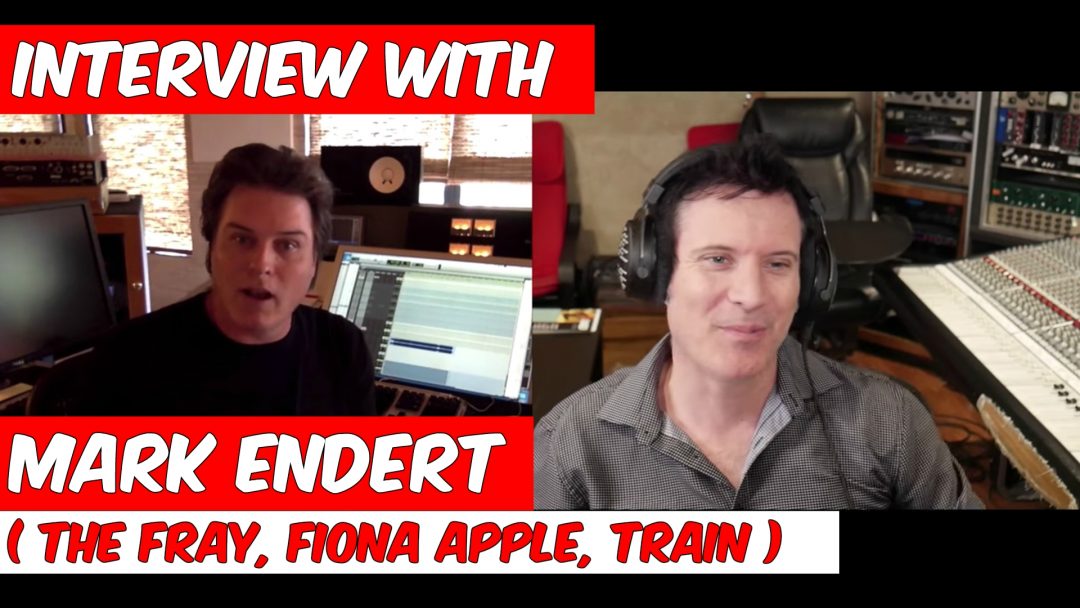Mark lives in Florida where he works out of his own studio, and we spoke quite a bit about the technological advances around 2004-2005 that made leaving Los Angeles a viable option. At the time, Mark was working at Scream Studios in Burbank (where Andy Wallace mixed Nirvana’s Nevermind, for example!). The previous norm was to deliver or mail hard copies of mixes to clients; in fact, it was standard procedure to have a mix completed no later than 6:00 in the evening and overnight ship it to New York by the next morning!
Around that time, though, the increased speed of file transfer protocol (FTP) between computers made digital delivery a quick and convenient practice. Even Warner Bros. in Burbank preferred using FTP to listen to mixes rather than visit Mark at Scream in the same city! With such a significant change in the way clients received deliverables, Mark realized he could essentially work from anywhere, and set up his studio in Florida.
He spoke a bit about moving his SSL 9000J (with a whopping 72 channels!) console from LA to Florida, which was no small feat! The board’s power requirements also required some renovation to operate in his new studio. These days, though, Mark works all in-the-box, which we discussed here. So though he no longer uses the SSL, he did have a custom bamboo desk built to the exact size specifications of the 9000, simply because he’d grown so accustomed to working in the listening position it provided! Quite a testament to how important it is to know your space, and how doing so can improve your mixes.
At this point, mixing entirely in-the-box has vastly expedited Mark’s workflow. As plug-ins have gotten better and better over the years, it was a no-brainer for him to reduce his usage of outboard gear for the sake of efficiency. He has taken the time, however, to make sure he has exact plug-in replicas of his favorite outboard equipment, which included creating impulses of his Lexicon 480 reverb to use with Altiverb, for example.
It’s worth noting, too, that Mark uses more automation than anyone I’ve ever seen! Which, of course, has been made much easier by mixing in-the-box. I asked him about this, and he shared a fantastic story about his days assisting Bob Clearmountain, watching him ride incremental VCA changes on a mix over the course of several hours. The result was, of course, incredible, and Mark realized just how much can be accomplished with automation.
We also talked at length about Train’s smash hit, “Hey, Soul Sister,” which Mark mixed. Released in 2009, the track went 6x platinum in 2012 and reached #1 in 16 countries shortly after its debut. Train’s lead vocalist, Pat Monahan, collaborated with the Norwegian production duo Espionage on the song, which was originally played on guitar during the writing process. Pat wasn’t thrilled with the initial results, so one half of the duo, Espen Lind, tried playing it on ukulele. You might say it was a certifiable hit from that point forward!
Mark opened the original session and delved into some of the techniques that went in to mixing “Hey, Soul Sister,” which is a go-to reference track for at least three prominent mixers I know of–myself included! The vocals alone sound fantastic, and you don’t ever hear the compressor working, which is quite remarkable. Mark recalls using the DPR 901 multiband compressor to duck some of the piercing qualities of Pat’s high-register vocals–somewhere between 2 and 3 kHz. There were also instances of cutting out a single word and placing it on a separate channel, done out of necessity when automation wasn’t quite at the level it is now.
Beyond just the technical aspects of mixing, like cutting here or boosting there, Mark stresses the importance of creativity when mixing as well. On “Hey, Soul Sister,” for example, he added a delay on the kick drum which changed the feel of the beat rather dramatically. It’s creative choices like these, he says, that add excitement and interest to mixes. Technical knowhow is crucial, but thinking outside the box (while mixing in-the-box!) can really set a song apart.
We do hope you’ve enjoyed this conversation with an incredibly talented mix engineer and lovely person, Mark Endert.
Have a marvelous time recording and mixing,
Warren Huart
